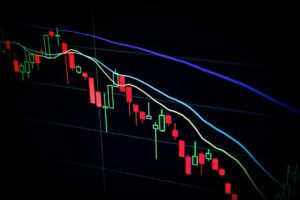The Impact of Economic Deviation on Forex Market Trends
The forex market is a complex and dynamic environment where currency values are constantly changing. These fluctuations are influenced by a wide range of factors, including economic deviation. Economic deviation refers to the difference between the actual economic data and the market expectations. When economic data deviates significantly from expectations, it can have a profound impact on forex market trends.
One of the key economic indicators that forex traders closely monitor is the Gross Domestic Product (GDP). GDP measures the total value of goods and services produced within a country over a specific period of time. When the actual GDP figure deviates from the market expectations, it can spark significant volatility in the forex market.
For example, if the market expects a country’s GDP to grow by 2% in a particular quarter, but the actual figure comes in at 1.5%, it indicates a negative deviation. This negative deviation suggests that the country’s economy is not performing as well as expected, which can lead to a decrease in demand for its currency. As a result, the value of the country’s currency may depreciate against other currencies in the forex market.
Similarly, positive economic deviation can also impact forex market trends. If a country’s GDP growth exceeds market expectations, it indicates a stronger economy than anticipated. This can lead to an increase in demand for the country’s currency, causing its value to appreciate against other currencies.
In addition to GDP, other economic indicators such as inflation, interest rates, employment data, and trade balance can also have a significant impact on forex market trends. When these economic indicators deviate from expectations, it can create opportunities for forex traders to profit from the resulting market volatility.
For instance, let’s consider the impact of inflation on forex market trends. Inflation refers to the rate at which prices for goods and services rise over time. When inflation deviates from expectations, it can affect a country’s purchasing power and its currency value.
If a country’s inflation rate exceeds market expectations, it indicates that the prices of goods and services are rising at a faster pace than anticipated. This can lead to a decrease in the purchasing power of the country’s currency, as it becomes less valuable in terms of what it can buy. As a result, the value of the country’s currency may depreciate in the forex market.
Conversely, if a country’s inflation rate is lower than expected, it indicates that prices are rising at a slower pace. This can increase the purchasing power of the country’s currency, leading to an appreciation in its value in the forex market.
Interest rates are another important economic factor that can impact forex market trends. Central banks use interest rates to control inflation and stimulate or slow down economic growth. When a country’s central bank deviates from market expectations and changes its interest rates, it can have a significant impact on forex market trends.
If a central bank raises interest rates more than expected, it signals that the economy is strong and that the central bank is taking measures to control inflation. This can attract foreign investors seeking higher returns on their investments, leading to an increase in demand for the country’s currency and a subsequent appreciation in its value.
On the other hand, if a central bank lowers interest rates more than expected, it suggests that the economy is weak and that the central bank is trying to stimulate economic growth. This can lead to a decrease in demand for the country’s currency, causing its value to depreciate in the forex market.
Employment data is another crucial economic indicator that can impact forex market trends. When a country’s employment data deviates from expectations, it can provide insights into the overall health of the economy.
If a country’s employment data reveals higher-than-expected job creation, it indicates a strong and growing economy. This can increase confidence in the country’s currency, leading to an appreciation in its value in the forex market.
Conversely, if a country’s employment data shows lower-than-expected job creation or rising unemployment, it suggests a weak economy. This can erode confidence in the country’s currency, causing its value to depreciate in the forex market.
Finally, the trade balance, which measures the difference between a country’s exports and imports, can also impact forex market trends. When a country’s trade balance deviates from expectations, it can provide insights into the competitiveness of its economy.
If a country’s trade balance shows a larger-than-expected surplus, it indicates a strong export sector and a competitive economy. This can lead to an increase in demand for the country’s currency, causing its value to appreciate in the forex market.
On the other hand, if a country’s trade balance reveals a larger-than-expected deficit, it indicates a weak export sector and a less competitive economy. This can decrease demand for the country’s currency, leading to a depreciation in its value in the forex market.
In conclusion, economic deviation plays a crucial role in shaping forex market trends. When economic data deviates significantly from expectations, it can create opportunities for forex traders to profit from the resulting market volatility. By closely monitoring key economic indicators such as GDP, inflation, interest rates, employment data, and trade balance, forex traders can make informed decisions and capitalize on market trends. Understanding the impact of economic deviation is essential for anyone looking to navigate the forex market successfully.





